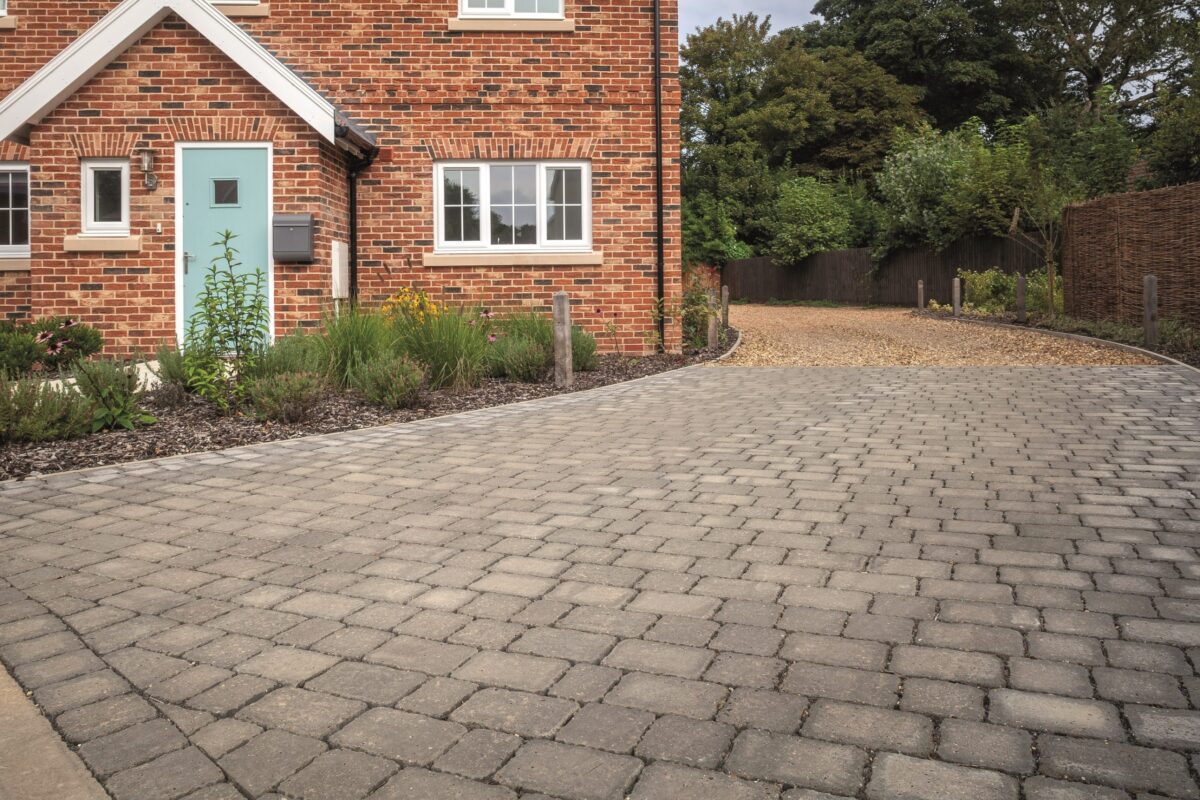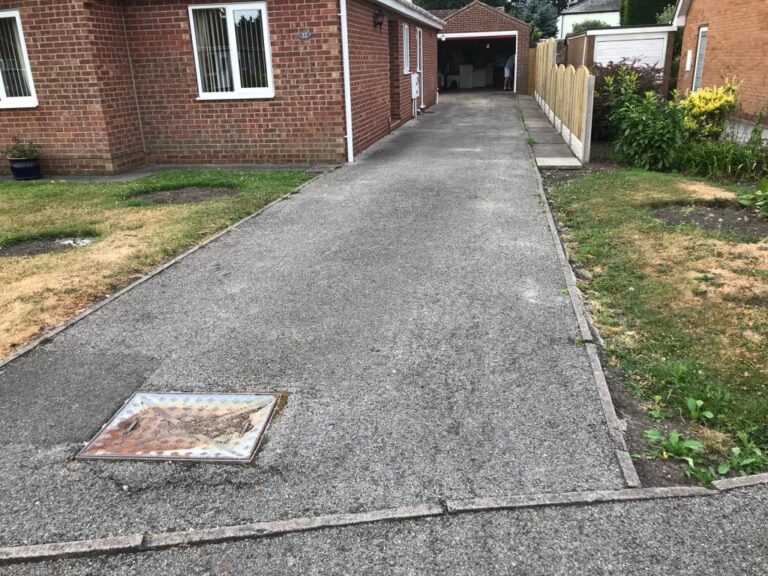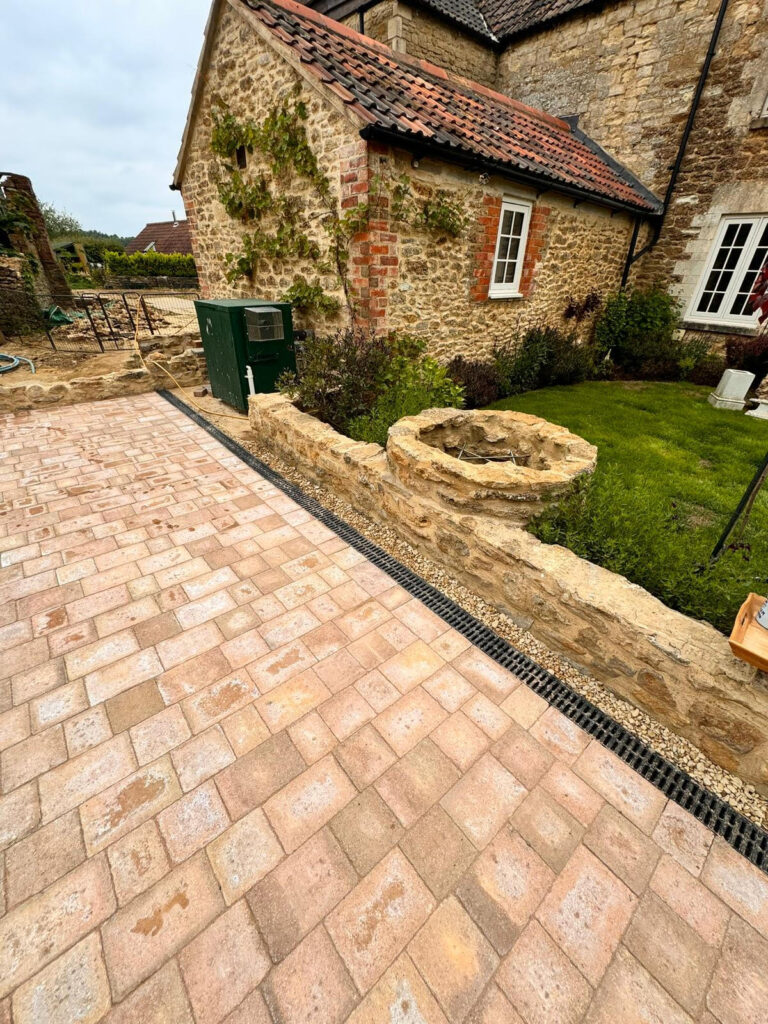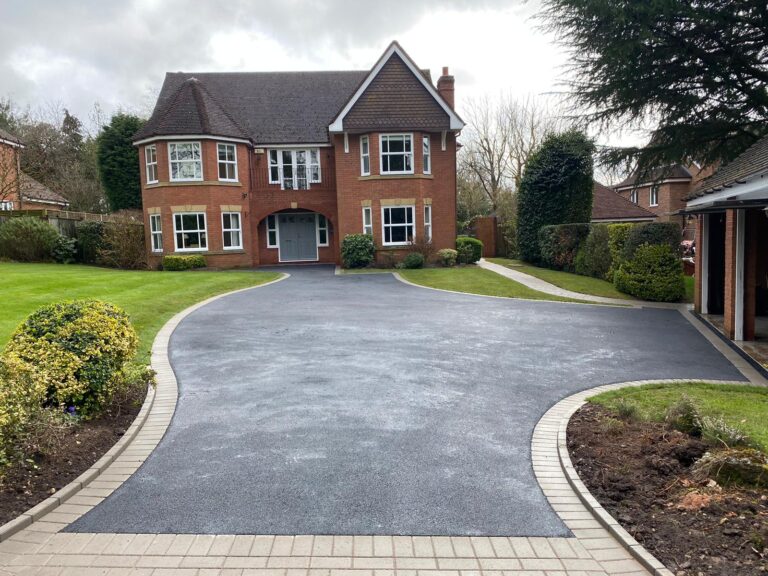In recent years, environmental concerns have become a major focus for homeowners, especially when it comes to the materials and construction techniques used in property development and renovation.
One area where this is particularly relevant is in driveway installations.
Traditional driveways, such as those made from tarmac or concrete, can lead to significant environmental challenges, primarily in terms of water runoff, which can contribute to flooding and water pollution.
However, there is an eco-friendly alternative: permeable driveways.
In this article, we will explore the environmental benefits of permeable driveways, focusing on materials like permeable paving and resin-bound options.
What is a Permeable Driveway?
A permeable driveway is one that allows water to pass through the surface and into the ground below, rather than running off the surface and flowing into drainage systems. This is achieved by using materials that have a porous structure, enabling water to filter through them naturally. Permeable driveways are often made from materials such as permeable paving stones, gravel, or resin-bound surfaces, which are designed to allow water to drain efficiently while still providing a stable and durable surface for vehicles.
1. Reducing Surface Water Runoff
One of the primary environmental benefits of permeable driveways is their ability to reduce surface water runoff. Traditional driveways, such as those made of tarmac or concrete, are non-porous, meaning that when it rains, water cannot soak into the ground. Instead, it runs off the surface and into drainage systems or nearby watercourses. This can lead to several problems, including localised flooding, erosion, and water pollution.
Permeable driveways address this issue by allowing water to soak into the ground naturally. The water is filtered through the permeable surface and into the underlying soil, where it can be absorbed and gradually replenished into the water table. This helps to reduce the strain on stormwater drainage systems and minimise the risk of flooding, particularly in areas prone to heavy rainfall.
2. Preventing Flooding and Erosion
Flooding and erosion are becoming increasingly common due to the effects of climate change. In urban areas, the prevalence of hard, non-porous surfaces means that water cannot be absorbed into the ground, causing it to accumulate and flood streets, driveways, and properties. Additionally, the runoff from non-permeable surfaces can cause erosion in local watercourses, affecting wildlife habitats and the quality of water.
Permeable driveways help to alleviate these issues by allowing water to be absorbed and filtered into the ground. This not only reduces the risk of flooding around your property but also helps to prevent the erosion of local rivers and streams. In the long run, this can contribute to better water management and help protect the local environment.
3. Improving Water Quality
When rainwater flows over traditional driveways, it can pick up pollutants such as oil, petrol, chemicals, and dirt, which are then carried into local watercourses. This can negatively impact water quality, harming aquatic life and potentially contaminating drinking water sources.
Permeable driveways help to mitigate this problem by filtering rainwater through the surface, which helps to trap pollutants before they can reach local water systems. The water that passes through permeable paving or resin-bound driveways is naturally filtered by the underlying gravel, soil, or aggregate, reducing the amount of pollutants that are carried into nearby drainage systems. This can help improve the overall quality of water in your area and reduce the impact of stormwater pollution.
4. Enhancing Biodiversity and Soil Health
Traditional driveways, particularly those made of concrete or tarmac, can have a negative impact on the surrounding environment by creating impermeable surfaces that prevent rainwater from reaching the soil beneath. This can result in reduced soil health and negatively affect plant life, as the soil may become dry and depleted of essential nutrients.
Permeable driveways, on the other hand, allow rainwater to reach the soil beneath, which helps to maintain healthy soil conditions and supports local vegetation. The increased water availability encourages plant growth and helps to improve the biodiversity of your garden or landscape. Additionally, by preventing runoff and promoting better soil health, permeable driveways can contribute to the overall sustainability of your property.
5. Energy Efficiency and Heat Reduction
Another environmental benefit of permeable driveways, particularly resin-bound surfaces, is their ability to reduce the urban heat island effect. Urban heat islands occur when large areas of concrete, asphalt, or other non-porous materials absorb and retain heat, raising the temperature in cities and surrounding areas. This can lead to higher energy consumption for cooling systems and contribute to air pollution.
Permeable paving and resin-bound driveways, due to their lighter colours and porous nature, absorb less heat and allow for better cooling. This can help to reduce the temperature in your immediate environment, making it more comfortable during hot weather and potentially reducing the need for air conditioning or fans. In this way, permeable driveways can contribute to better energy efficiency and help mitigate the effects of climate change.
6. Long-Term Durability and Low Maintenance
Permeable driveways, especially resin-bound surfaces and permeable paving, are highly durable and require less maintenance than traditional driveways. Their ability to drain water efficiently means they are less prone to damage from freezing and thawing cycles, which can cause cracking and deterioration in non-permeable surfaces. The long-lasting nature of these driveways reduces the need for repairs or replacements, making them a more sustainable choice in the long term.
The environmental benefits of permeable driveways are clear.
By allowing water to naturally filter into the ground, these driveways help reduce surface water runoff, prevent flooding and erosion, improve water quality, enhance soil health, and support local biodiversity.
Additionally, they contribute to better energy efficiency and are durable, low-maintenance solutions for homeowners who want to reduce their environmental impact.
As concerns about sustainability and climate change continue to grow, permeable driveways offer an effective and eco-friendly solution that benefits both the homeowner and the environment.







